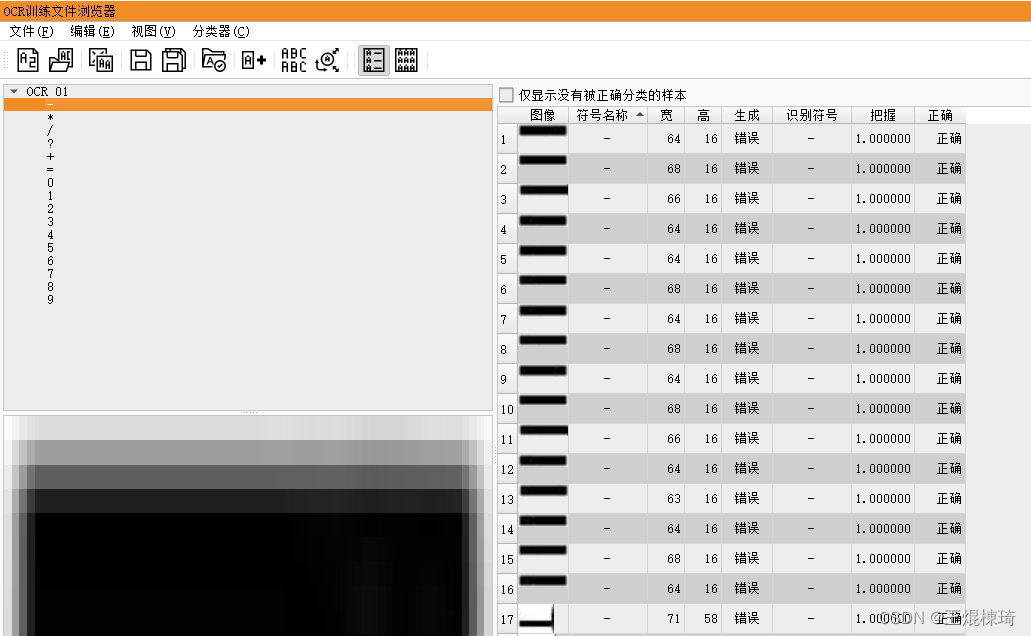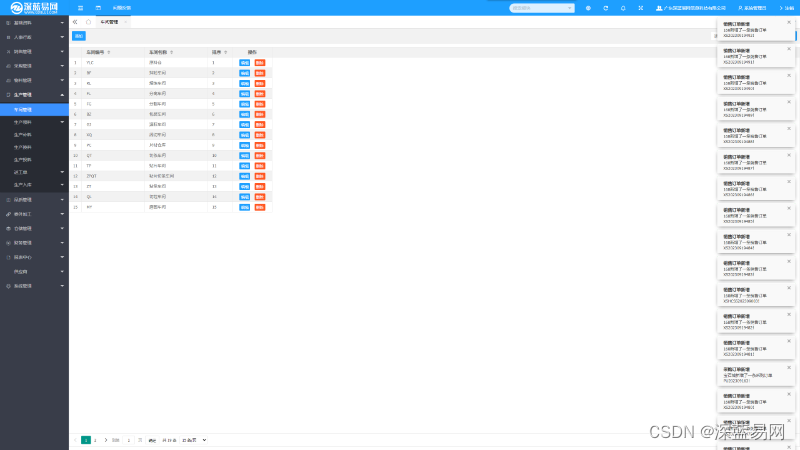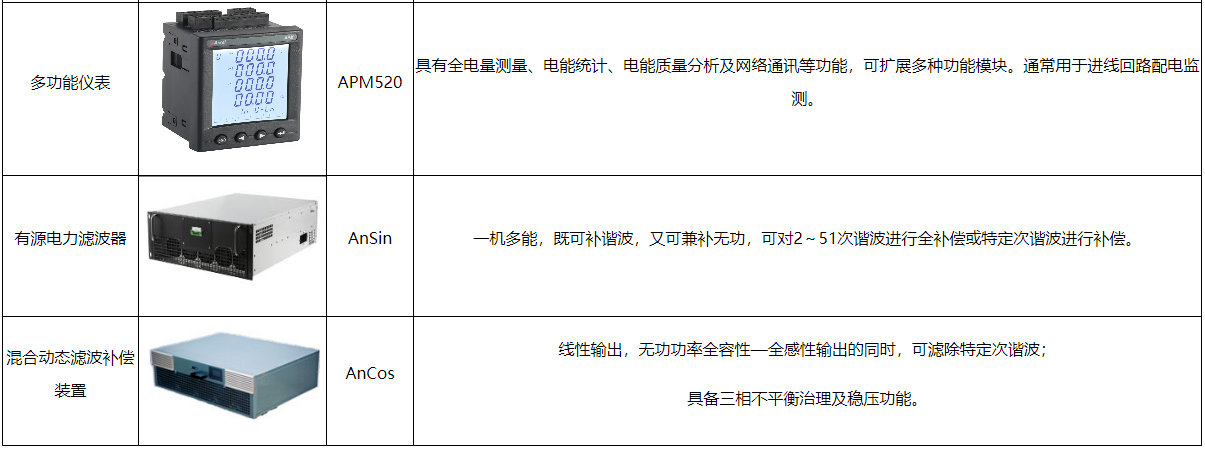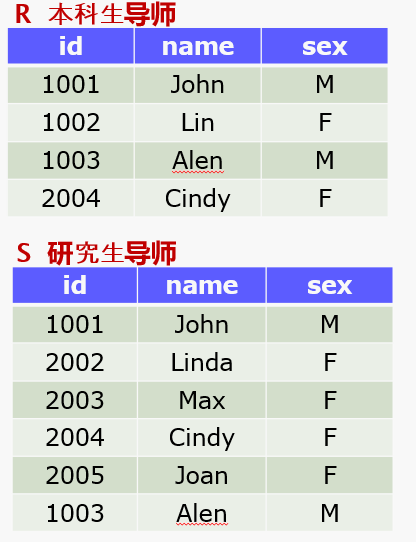文章目录
- 前言
- 一、回环测试代码
- 1.1 头文件 spidev.h
- 2.2 c代码 spidev_test.c
- 二、 编译验证
- 2.1 交叉编译
- 2.2 测试
前言
linux下做spi回环测试
一、回环测试代码
1.1 头文件 spidev.h
/* SPDX-License-Identifier: GPL-2.0+ WITH Linux-syscall-note */
/** include/linux/spi/spidev.h** Copyright (C) 2006 SWAPP* Andrea Paterniani <a.paterniani@swapp-eng.it>** This program is free software; you can redistribute it and/or modify* it under the terms of the GNU General Public License as published by* the Free Software Foundation; either version 2 of the License, or* (at your option) any later version.** This program is distributed in the hope that it will be useful,* but WITHOUT ANY WARRANTY; without even the implied warranty of* MERCHANTABILITY or FITNESS FOR A PARTICULAR PURPOSE. See the* GNU General Public License for more details.** You should have received a copy of the GNU General Public License* along with this program; if not, write to the Free Software* Foundation, Inc., 675 Mass Ave, Cambridge, MA 02139, USA.*/#ifndef SPIDEV_H
#define SPIDEV_H#include <linux/types.h>
#include <linux/ioctl.h>/* User space versions of kernel symbols for SPI clocking modes,* matching <linux/spi/spi.h>*/#define SPI_CPHA 0x01
#define SPI_CPOL 0x02#define SPI_MODE_0 (0|0)
#define SPI_MODE_1 (0|SPI_CPHA)
#define SPI_MODE_2 (SPI_CPOL|0)
#define SPI_MODE_3 (SPI_CPOL|SPI_CPHA)#define SPI_CS_HIGH 0x04
#define SPI_LSB_FIRST 0x08
#define SPI_3WIRE 0x10
#define SPI_LOOP 0x20
#define SPI_NO_CS 0x40
#define SPI_READY 0x80
#define SPI_TX_DUAL 0x100
#define SPI_TX_QUAD 0x200
#define SPI_RX_DUAL 0x400
#define SPI_RX_QUAD 0x800
#define SPI_CS_WORD 0x1000
#define SPI_TX_OCTAL 0x2000
#define SPI_RX_OCTAL 0x4000
#define SPI_3WIRE_HIZ 0x8000/*---------------------------------------------------------------------------*//* IOCTL commands */#define SPI_IOC_MAGIC 'k'/*** struct spi_ioc_transfer - describes a single SPI transfer* @tx_buf: Holds pointer to userspace buffer with transmit data, or null.* If no data is provided, zeroes are shifted out.* @rx_buf: Holds pointer to userspace buffer for receive data, or null.* @len: Length of tx and rx buffers, in bytes.* @speed_hz: Temporary override of the device's bitrate.* @bits_per_word: Temporary override of the device's wordsize.* @delay_usecs: If nonzero, how long to delay after the last bit transfer* before optionally deselecting the device before the next transfer.* @cs_change: True to deselect device before starting the next transfer.* @word_delay_usecs: If nonzero, how long to wait between words within one* transfer. This property needs explicit support in the SPI controller,* otherwise it is silently ignored.** This structure is mapped directly to the kernel spi_transfer structure;* the fields have the same meanings, except of course that the pointers* are in a different address space (and may be of different sizes in some* cases, such as 32-bit i386 userspace over a 64-bit x86_64 kernel).* Zero-initialize the structure, including currently unused fields, to* accommodate potential future updates.** SPI_IOC_MESSAGE gives userspace the equivalent of kernel spi_sync().* Pass it an array of related transfers, they'll execute together.* Each transfer may be half duplex (either direction) or full duplex.** struct spi_ioc_transfer mesg[4];* ...* status = ioctl(fd, SPI_IOC_MESSAGE(4), mesg);** So for example one transfer might send a nine bit command (right aligned* in a 16-bit word), the next could read a block of 8-bit data before* terminating that command by temporarily deselecting the chip; the next* could send a different nine bit command (re-selecting the chip), and the* last transfer might write some register values.*/
struct spi_ioc_transfer {__u64 tx_buf;__u64 rx_buf;__u32 len;__u32 speed_hz;__u16 delay_usecs;__u8 bits_per_word;__u8 cs_change;__u8 tx_nbits;__u8 rx_nbits;__u8 word_delay_usecs;__u8 pad;/* If the contents of 'struct spi_ioc_transfer' ever change* incompatibly, then the ioctl number (currently 0) must change;* ioctls with constant size fields get a bit more in the way of* error checking than ones (like this) where that field varies.** NOTE: struct layout is the same in 64bit and 32bit userspace.*/
};/* not all platforms use <asm-generic/ioctl.h> or _IOC_TYPECHECK() ... */
#define SPI_MSGSIZE(N) \((((N)*(sizeof (struct spi_ioc_transfer))) < (1 << _IOC_SIZEBITS)) \? ((N)*(sizeof (struct spi_ioc_transfer))) : 0)
#define SPI_IOC_MESSAGE(N) _IOW(SPI_IOC_MAGIC, 0, char[SPI_MSGSIZE(N)])/* Read / Write of SPI mode (SPI_MODE_0..SPI_MODE_3) (limited to 8 bits) */
#define SPI_IOC_RD_MODE _IOR(SPI_IOC_MAGIC, 1, __u8)
#define SPI_IOC_WR_MODE _IOW(SPI_IOC_MAGIC, 1, __u8)/* Read / Write SPI bit justification */
#define SPI_IOC_RD_LSB_FIRST _IOR(SPI_IOC_MAGIC, 2, __u8)
#define SPI_IOC_WR_LSB_FIRST _IOW(SPI_IOC_MAGIC, 2, __u8)/* Read / Write SPI device word length (1..N) */
#define SPI_IOC_RD_BITS_PER_WORD _IOR(SPI_IOC_MAGIC, 3, __u8)
#define SPI_IOC_WR_BITS_PER_WORD _IOW(SPI_IOC_MAGIC, 3, __u8)/* Read / Write SPI device default max speed hz */
#define SPI_IOC_RD_MAX_SPEED_HZ _IOR(SPI_IOC_MAGIC, 4, __u32)
#define SPI_IOC_WR_MAX_SPEED_HZ _IOW(SPI_IOC_MAGIC, 4, __u32)/* Read / Write of the SPI mode field */
#define SPI_IOC_RD_MODE32 _IOR(SPI_IOC_MAGIC, 5, __u32)
#define SPI_IOC_WR_MODE32 _IOW(SPI_IOC_MAGIC, 5, __u32)#endif /* SPIDEV_H */2.2 c代码 spidev_test.c
// SPDX-License-Identifier: GPL-2.0-only
/** SPI testing utility (using spidev driver)** Copyright (c) 2007 MontaVista Software, Inc.* Copyright (c) 2007 Anton Vorontsov <avorontsov@ru.mvista.com>** Cross-compile with cross-gcc -I/path/to/cross-kernel/include*/#include <stdint.h>
#include <unistd.h>
#include <stdio.h>
#include <stdlib.h>
#include <string.h>
#include <errno.h>
#include <getopt.h>
#include <fcntl.h>
#include <time.h>
#include <sys/ioctl.h>
#include <linux/ioctl.h>
#include <sys/stat.h>
#include <linux/types.h>
#include "spidev.h"#define ARRAY_SIZE(a) (sizeof(a) / sizeof((a)[0]))static void pabort(const char *s)
{if (errno != 0)perror(s);elseprintf("%s\n", s);abort();
}static const char *device = "/dev/spidev1.1";
static uint32_t mode;
static uint8_t bits = 8;
static char *input_file;
static char *output_file;
static uint32_t speed = 500000;
static uint16_t delay;
static int verbose;
static int transfer_size;
static int iterations;
static int interval = 5; /* interval in seconds for showing transfer rate */static uint8_t default_tx[] = {0xFF, 0xFF, 0xFF, 0xFF, 0xFF, 0xFF,0x40, 0x00, 0x00, 0x00, 0x00, 0x95,0xFF, 0xFF, 0xFF, 0xFF, 0xFF, 0xFF,0xFF, 0xFF, 0xFF, 0xFF, 0xFF, 0xFF,0xFF, 0xFF, 0xFF, 0xFF, 0xFF, 0xFF,0xF0, 0x0D,
};static uint8_t default_rx[ARRAY_SIZE(default_tx)] = {0, };
static char *input_tx;static void hex_dump(const void *src, size_t length, size_t line_size,char *prefix)
{int i = 0;const unsigned char *address = src;const unsigned char *line = address;unsigned char c;printf("%s | ", prefix);while (length-- > 0) {printf("%02X ", *address++);if (!(++i % line_size) || (length == 0 && i % line_size)) {if (length == 0) {while (i++ % line_size)printf("__ ");}printf(" |");while (line < address) {c = *line++;printf("%c", (c < 32 || c > 126) ? '.' : c);}printf("|\n");if (length > 0)printf("%s | ", prefix);}}
}/** Unescape - process hexadecimal escape character* converts shell input "\x23" -> 0x23*/
static int unescape(char *_dst, char *_src, size_t len)
{int ret = 0;int match;char *src = _src;char *dst = _dst;unsigned int ch;while (*src) {if (*src == '\\' && *(src+1) == 'x') {match = sscanf(src + 2, "%2x", &ch);if (!match)pabort("malformed input string");src += 4;*dst++ = (unsigned char)ch;} else {*dst++ = *src++;}ret++;}return ret;
}static void transfer(int fd, uint8_t const *tx, uint8_t const *rx, size_t len)
{int ret;int out_fd;struct spi_ioc_transfer tr = {.tx_buf = (unsigned long)tx,.rx_buf = (unsigned long)rx,.len = len,.delay_usecs = delay,.speed_hz = speed,.bits_per_word = bits,};if (mode & SPI_TX_OCTAL)tr.tx_nbits = 8;else if (mode & SPI_TX_QUAD)tr.tx_nbits = 4;else if (mode & SPI_TX_DUAL)tr.tx_nbits = 2;if (mode & SPI_RX_OCTAL)tr.rx_nbits = 8;else if (mode & SPI_RX_QUAD)tr.rx_nbits = 4;else if (mode & SPI_RX_DUAL)tr.rx_nbits = 2;if (!(mode & SPI_LOOP)) {if (mode & (SPI_TX_OCTAL | SPI_TX_QUAD | SPI_TX_DUAL))tr.rx_buf = 0;else if (mode & (SPI_RX_OCTAL | SPI_RX_QUAD | SPI_RX_DUAL))tr.tx_buf = 0;}ret = ioctl(fd, SPI_IOC_MESSAGE(1), &tr);if (ret < 1)pabort("can't send spi message");if (verbose)hex_dump(tx, len, 32, "TX");if (output_file) {out_fd = open(output_file, O_WRONLY | O_CREAT | O_TRUNC, 0666);if (out_fd < 0)pabort("could not open output file");ret = write(out_fd, rx, len);if (ret != len)pabort("not all bytes written to output file");close(out_fd);}if (verbose)hex_dump(rx, len, 32, "RX");
}static void print_usage(const char *prog)
{printf("Usage: %s [-DsbdlHOLC3vpNR24SI]\n", prog);puts(" -D --device device to use (default /dev/spidev1.1)\n"" -s --speed max speed (Hz)\n"" -d --delay delay (usec)\n"" -b --bpw bits per word\n"" -i --input input data from a file (e.g. \"test.bin\")\n"" -o --output output data to a file (e.g. \"results.bin\")\n"" -l --loop loopback\n"" -H --cpha clock phase\n"" -O --cpol clock polarity\n"" -L --lsb least significant bit first\n"" -C --cs-high chip select active high\n"" -3 --3wire SI/SO signals shared\n"" -v --verbose Verbose (show tx buffer)\n"" -p Send data (e.g. \"1234\\xde\\xad\")\n"" -N --no-cs no chip select\n"" -R --ready slave pulls low to pause\n"" -2 --dual dual transfer\n"" -4 --quad quad transfer\n"" -8 --octal octal transfer\n"" -S --size transfer size\n"" -I --iter iterations\n");exit(1);
}static void parse_opts(int argc, char *argv[])
{while (1) {static const struct option lopts[] = {{ "device", 1, 0, 'D' },{ "speed", 1, 0, 's' },{ "delay", 1, 0, 'd' },{ "bpw", 1, 0, 'b' },{ "input", 1, 0, 'i' },{ "output", 1, 0, 'o' },{ "loop", 0, 0, 'l' },{ "cpha", 0, 0, 'H' },{ "cpol", 0, 0, 'O' },{ "lsb", 0, 0, 'L' },{ "cs-high", 0, 0, 'C' },{ "3wire", 0, 0, '3' },{ "no-cs", 0, 0, 'N' },{ "ready", 0, 0, 'R' },{ "dual", 0, 0, '2' },{ "verbose", 0, 0, 'v' },{ "quad", 0, 0, '4' },{ "octal", 0, 0, '8' },{ "size", 1, 0, 'S' },{ "iter", 1, 0, 'I' },{ NULL, 0, 0, 0 },};int c;c = getopt_long(argc, argv, "D:s:d:b:i:o:lHOLC3NR248p:vS:I:",lopts, NULL);if (c == -1)break;switch (c) {case 'D':device = optarg;break;case 's':speed = atoi(optarg);break;case 'd':delay = atoi(optarg);break;case 'b':bits = atoi(optarg);break;case 'i':input_file = optarg;break;case 'o':output_file = optarg;break;case 'l':mode |= SPI_LOOP;break;case 'H':mode |= SPI_CPHA;break;case 'O':mode |= SPI_CPOL;break;case 'L':mode |= SPI_LSB_FIRST;break;case 'C':mode |= SPI_CS_HIGH;break;case '3':mode |= SPI_3WIRE;break;case 'N':mode |= SPI_NO_CS;break;case 'v':verbose = 1;break;case 'R':mode |= SPI_READY;break;case 'p':input_tx = optarg;break;case '2':mode |= SPI_TX_DUAL;break;case '4':mode |= SPI_TX_QUAD;break;case '8':mode |= SPI_TX_OCTAL;break;case 'S':transfer_size = atoi(optarg);break;case 'I':iterations = atoi(optarg);break;default:print_usage(argv[0]);}}if (mode & SPI_LOOP) {if (mode & SPI_TX_DUAL)mode |= SPI_RX_DUAL;if (mode & SPI_TX_QUAD)mode |= SPI_RX_QUAD;if (mode & SPI_TX_OCTAL)mode |= SPI_RX_OCTAL;}
}static void transfer_escaped_string(int fd, char *str)
{size_t size = strlen(str);uint8_t *tx;uint8_t *rx;tx = malloc(size);if (!tx)pabort("can't allocate tx buffer");rx = malloc(size);if (!rx)pabort("can't allocate rx buffer");size = unescape((char *)tx, str, size);transfer(fd, tx, rx, size);free(rx);free(tx);
}static void transfer_file(int fd, char *filename)
{ssize_t bytes;struct stat sb;int tx_fd;uint8_t *tx;uint8_t *rx;if (stat(filename, &sb) == -1)pabort("can't stat input file");tx_fd = open(filename, O_RDONLY);if (tx_fd < 0)pabort("can't open input file");tx = malloc(sb.st_size);if (!tx)pabort("can't allocate tx buffer");rx = malloc(sb.st_size);if (!rx)pabort("can't allocate rx buffer");bytes = read(tx_fd, tx, sb.st_size);if (bytes != sb.st_size)pabort("failed to read input file");transfer(fd, tx, rx, sb.st_size);free(rx);free(tx);close(tx_fd);
}static uint64_t _read_count;
static uint64_t _write_count;static void show_transfer_rate(void)
{static uint64_t prev_read_count, prev_write_count;double rx_rate, tx_rate;rx_rate = ((_read_count - prev_read_count) * 8) / (interval*1000.0);tx_rate = ((_write_count - prev_write_count) * 8) / (interval*1000.0);printf("rate: tx %.1fkbps, rx %.1fkbps\n", rx_rate, tx_rate);prev_read_count = _read_count;prev_write_count = _write_count;
}static void transfer_buf(int fd, int len)
{uint8_t *tx;uint8_t *rx;int i;tx = malloc(len);if (!tx)pabort("can't allocate tx buffer");for (i = 0; i < len; i++)tx[i] = random();rx = malloc(len);if (!rx)pabort("can't allocate rx buffer");transfer(fd, tx, rx, len);_write_count += len;_read_count += len;if (mode & SPI_LOOP) {if (memcmp(tx, rx, len)) {fprintf(stderr, "transfer error !\n");hex_dump(tx, len, 32, "TX");hex_dump(rx, len, 32, "RX");exit(1);}}free(rx);free(tx);
}int main(int argc, char *argv[])
{int ret = 0;int fd;parse_opts(argc, argv);if (input_tx && input_file)pabort("only one of -p and --input may be selected");fd = open(device, O_RDWR);if (fd < 0)pabort("can't open device");/** spi mode*/ret = ioctl(fd, SPI_IOC_WR_MODE32, &mode);if (ret == -1)pabort("can't set spi mode");ret = ioctl(fd, SPI_IOC_RD_MODE32, &mode);if (ret == -1)pabort("can't get spi mode");/** bits per word*/ret = ioctl(fd, SPI_IOC_WR_BITS_PER_WORD, &bits);if (ret == -1)pabort("can't set bits per word");ret = ioctl(fd, SPI_IOC_RD_BITS_PER_WORD, &bits);if (ret == -1)pabort("can't get bits per word");/** max speed hz*/ret = ioctl(fd, SPI_IOC_WR_MAX_SPEED_HZ, &speed);if (ret == -1)pabort("can't set max speed hz");ret = ioctl(fd, SPI_IOC_RD_MAX_SPEED_HZ, &speed);if (ret == -1)pabort("can't get max speed hz");printf("spi mode: 0x%x\n", mode);printf("bits per word: %u\n", bits);printf("max speed: %u Hz (%u kHz)\n", speed, speed/1000);if (input_tx)transfer_escaped_string(fd, input_tx);else if (input_file)transfer_file(fd, input_file);else if (transfer_size) {struct timespec last_stat;clock_gettime(CLOCK_MONOTONIC, &last_stat);while (iterations-- > 0) {struct timespec current;transfer_buf(fd, transfer_size);clock_gettime(CLOCK_MONOTONIC, ¤t);if (current.tv_sec - last_stat.tv_sec > interval) {show_transfer_rate();last_stat = current;}}printf("total: tx %.1fKB, rx %.1fKB\n",_write_count/1024.0, _read_count/1024.0);} elsetransfer(fd, default_tx, default_rx, sizeof(default_tx));close(fd);return ret;
}二、 编译验证
2.1 交叉编译
arm-linux-gnueabihf-gcc spidev_test.c -o spidev_test -static
2.2 测试
./spidev_test -D /dev/spidev1.0 -v -p 12345678
没短接rx,tx,数据接收异常

短接rx,tx,数据收发正常







![[已解决]使用order by 排序后的是10 6 7 8 9 而不是 6 7 8 9 10?](https://img-blog.csdnimg.cn/img_convert/6e2ee66b08be1551aee1faade181ac54.png)




